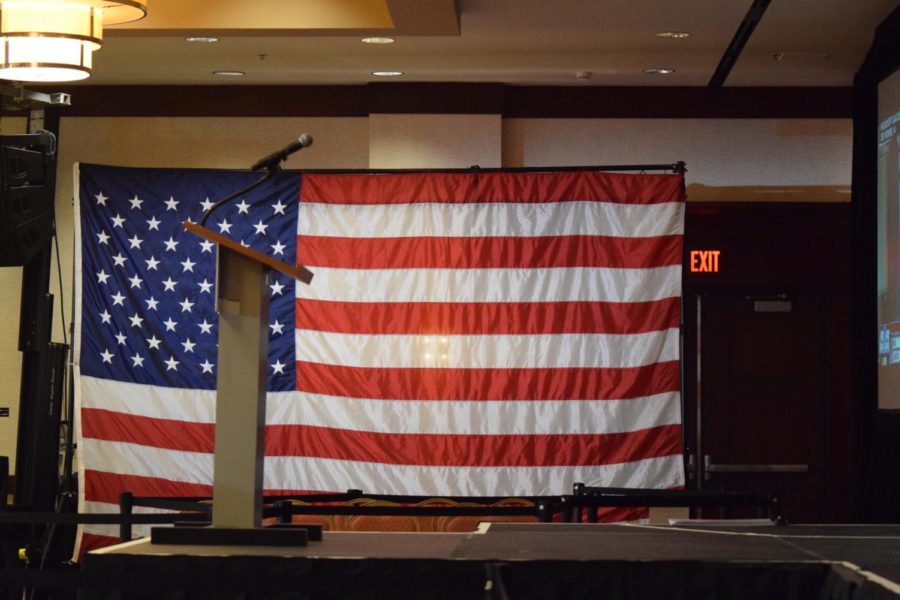Editorial: Hello, 2020 presidential candidates
Empty stage before Florida Senator Marco Rubio took to the floor at his watch party at the Marriott Hotel in Des Moines, Iowa on Feb. 1, 2016 for caucusing. After a close race between Rubio, Donald Trump and Ted Cruz, Cruz came out victorious in Iowa for the Republican vote. Rubio polled at 23 percent, 4.7 percent behind winner Cruz.
January 14, 2019
It’s that time of year — again.
From what begins on a monthly basis, to a weekly basis, to an every hour of every day relationship, Iowans will once again fall, question first, into the affair of being the first caucus state in the nation.
Over the course of the next year, dozens of presidential candidates vying for their parties nomination will sweep across the state, holding town halls, kissing babies, eating at homey diners and, of course, advocating for why they feel they are the best choice for the United States.
Yes, that’s right. Even a year out, we can officially mark the beginning of the Iowa caucus season.
But 2020 may feel a bit different than years’ past. The 2016 presidential election showed the turbulence and turn around that can haunt, but also spike, the 24/7 news cycle and stability of a candidate. Everything happens quickly, and Iowans, you need to be prepared to keep up.
Last weekend, Elizabeth Warren (D-Mass.) planted herself all across the state, seeding herself into the minds of Iowans that she’s here for the long run and positioning herself as a leading Democratic candidate.
And soon, 2020 will etch closer — more and more presidential candidates throwing themselves into the heart of the Midwest in an attempt to reach each corner and crevice of the state to secure their nomination.
Please remember, Iowa, this is not to be taken for granted. Unlike many other states, we have access from the start — and we need to use it to its fullest potential.
For those of you who are out-of-state students or new to the Iowa caucus experience, please take it in and educate yourself not just on the candidates but how the political process works.
Just because you may not identify with candidate or their party, try and make the most of the opportunity of having an elected official available to voice your concerns and to hear where they stand on the issues.
That being said, presidential candidates please also understand that the loudest, most decorated and experienced voices are not the only ones you should be listening to.
Those that most need your representation may never make the time to attend one of your rallies or volunteer for your campaign because they simply can’t. Politics takes time, it takes energy and it takes money — something many constituents probably don’t have in plethora.
So what we ask of presidential candidates this time around is to make sure your campaigns are accessible and available. Don’t reinvent the campaign wheel but understand that it might need some adapting.
Now more than ever, Americans deserve to be heard. With a presidential platform, candidates have the ability to not just speak but to listen. A president is not selected by political pundits or talking heads on the television, but rather the people.
In 2016, voters felt disconnected from politics and that the process was broken. According to a poll by the Associated Press-NORC Center for Public Affairs Research, only 15 percent of Americans reported a “great deal of confidence” in the Democratic party compared to just 8 percent who the say the same of the GOP.
Let’s change this in 2020. And candidates, it’s on you.







